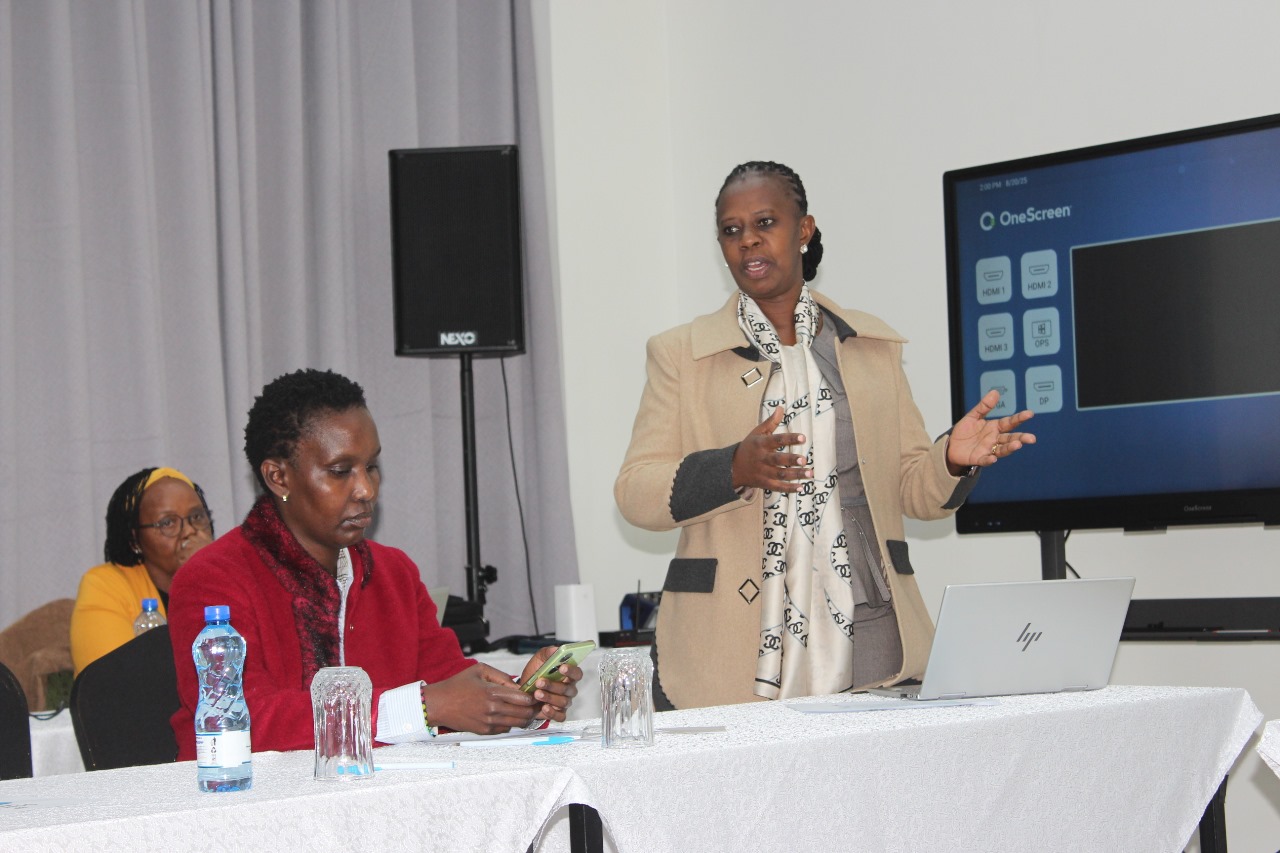
 Murang'a county vaccines coordinator Veronica Kang'ethe addresses a sensitisation forum in Murang'a town on August 27, 2025
Murang'a county vaccines coordinator Veronica Kang'ethe addresses a sensitisation forum in Murang'a town on August 27, 2025NEW parents from Murang’a county have been urged to take advantage of numerous efforts by the government to provide vaccines and ensure their children are fully immunised.
County vaccinations coordinator Veronica Kang’ethe said a number of children are yet to be covered, exposing them to diseases and poor development.
About 80.75 per cent of children were fully immunised in 2024, with Gatanga subcounty leading at 91.95 per cent, Kiharu followed with 89.48 per cent and Kandara 87.51 per cent.
Kangema had 84.3 per cent, Ithanga 81 per cent, Kigumo 78.55, Murang’a South 76.94 per cent, Kahuro 68.91 and Mathioya was last with 63.36 per cent.
Kang'ethe cited Pentavalent jab that is administered in three doses at the age of six, 10 and 14 weeks, for which 81.22 per cent of children were vaccinated in 2024.
The vaccine protects children against diphtheria, pertussis, tetanus, hepatitis and influenza, and is injected on the upper left thigh.
In the same year, about 76 per cent of the children also received the two doses of measles rubella vaccine that is administered at nine and 18 months on the upper right arm.
During the countrywide measles rubella and typhoid vaccination drive conducted in July this year, 90 per cent of children got the typhoid fever vaccine while 76 per cent were vaccinated against measles rubella.
But Kang’ethe underscored the need for all children to be immunised, saying it lessens the burden for both parents and the government while boosting their quality of life.
“Vaccinating a child reduces their chances of contracting certain diseases or suffering from disability or even death as a result,” she said.
Speaking during an awareness forum with stakeholders in Murang’a town on Tuesday, Kang’ethe also pointed out that immunisation boosts herd immunity and protects future generations from diseases.
It also reduces antimicrobial resistance as it prevents infections that would require antibiotics for treatment.
She said contrary to reports, vaccines do not overload or weaken the immune system and that several of them can be administered to an individual at a go.
She also assured parents that they don’t contain any ingredients that cause harm and that they undergo rigorous safety tests before being introduced, after which they're constantly monitored for side effects.
“Sometimes, they can cause mild side effects that will not last long. You may feel a bit unwell and have a sore injection site for two or three days,” she said.
Kang’ethe also expressed concerns over declining vaccinations on Human Papilloma Virus (HPV) that is administered to girls aged 10 to 14 years.
She noted that only 18.72 per cent received HPV1 vaccine while 27.43 per cent received HPV2. This was a sharp drop from the 53 per cent that were given the HPV1 jab and 37.31 that got HPV2 in 2023.
Kang’ethe said the National Vaccines and Immunization Programme undertaken by the national government currently provides vaccination against more than 14 childhood diseases of public health concern, including polio.
The programme also offers yellow fever vaccine for travelers, hepatitis B vaccine, typhoid vaccine for food handlers, malaria vaccines in selected counties, influenza vaccine and specialised products like rabies for animal bites and anti-snake venom.











